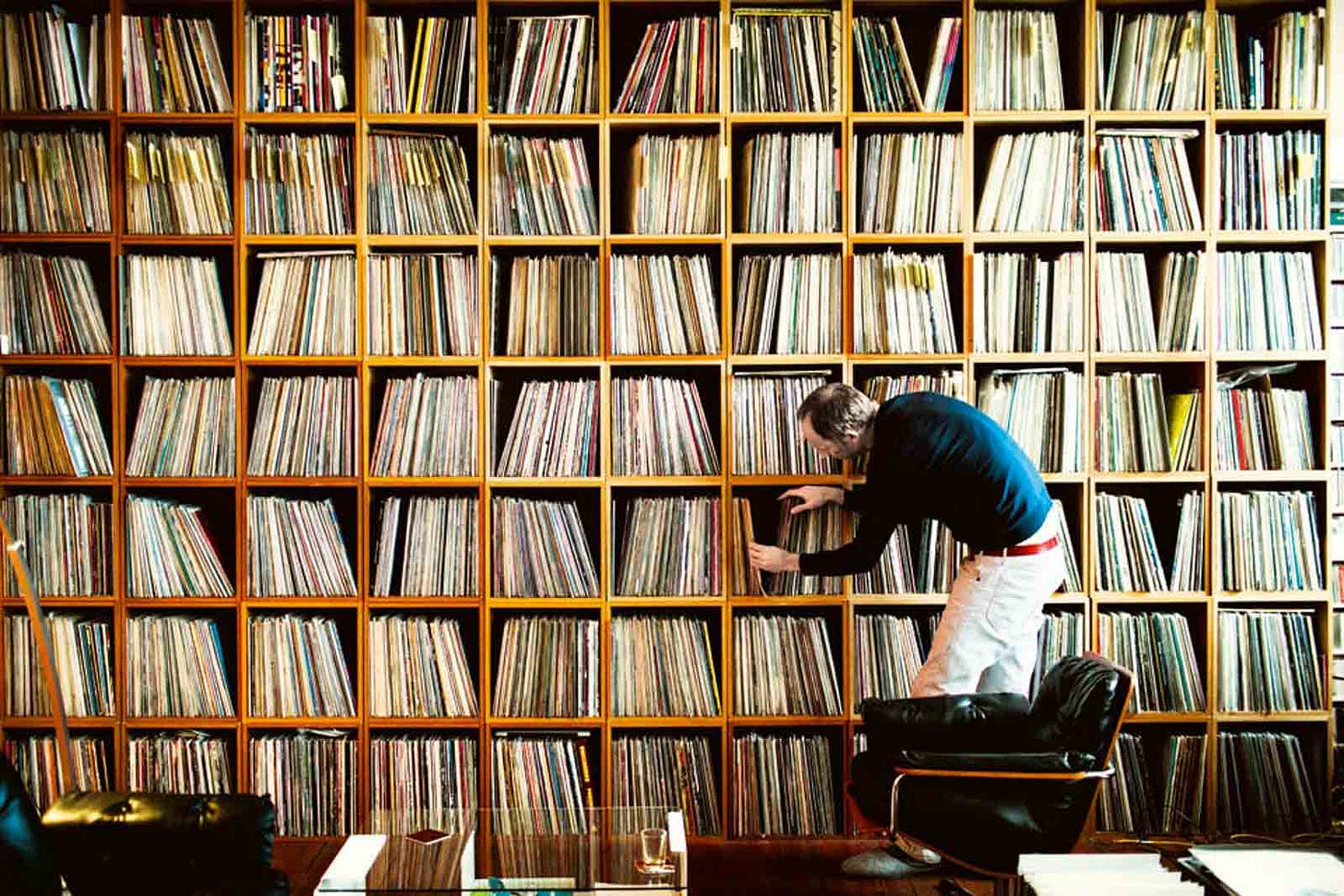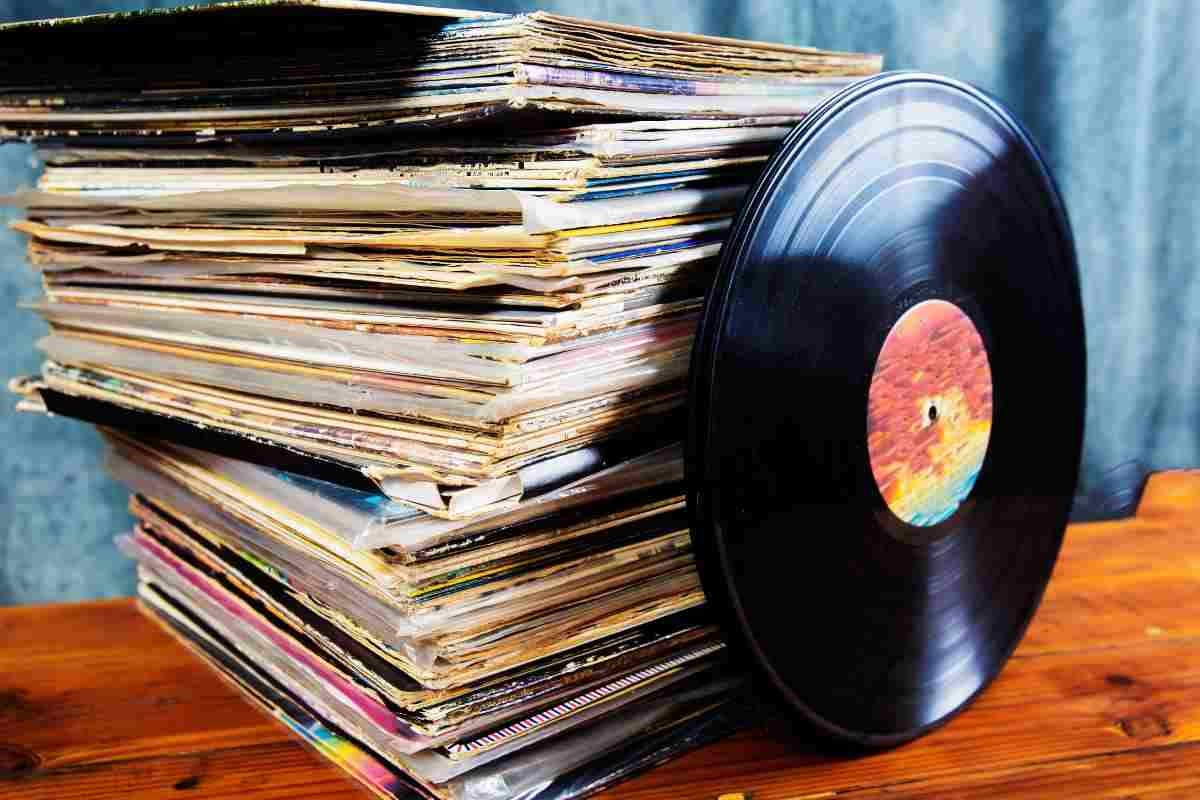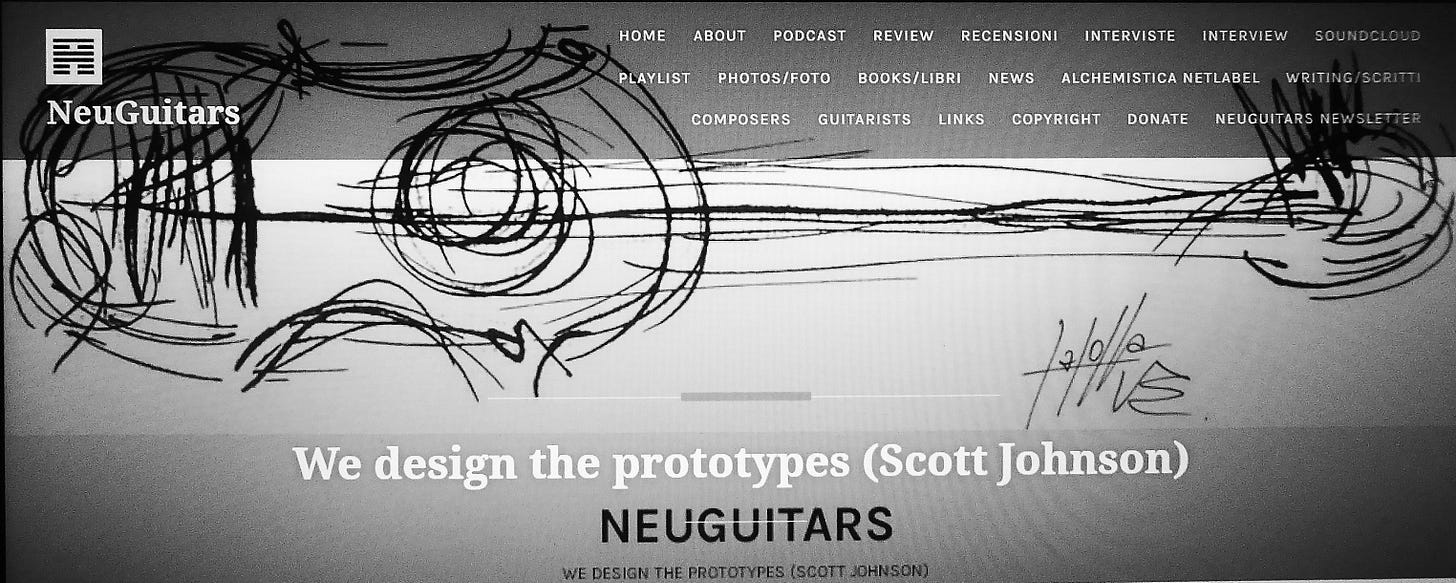Neuguitars 2024 #30 The role of the essayist, collector and archaeologist in research music in these strange post-covid times
Music culture
What is the natural role of an essayist dedicated to research music, in this post-covid society? A mere archivist role? An active collector? A resigned archaeologist?
I believe that our times have exhausted the ambition to operate contextually to the project of a new society and a new music, marking a narrower horizon and a more precise field of action. In this area the committed intellectual gives way to a restless expert, with eccentric sagacity, with unsatisfied curiosity, who nevertheless keeps away from any aestheticism, and does not give up the persuasion that the boundaries of musical experience must remain as open as possible. Having lost the compass of a historical goal to strive for, the vitality of culture is identified with the refusal to settle, to rest on deceptive compromises, illusory goals, acquired values; with the continuous tension to ceaselessly renew visual angles, listening and prospective syntheses.
It is no coincidence that the most iconic representation of this attitude re-elaborates the (inevitably Borgesian) image of the musical library, investing equally the roles of the writer and the listener: the essayist-character is also, and perhaps first and foremost, an attentive and curious listener. Whoever places his attention in research music is hunting for the hidden, distant record that changes the value of already known and consolidated listening, looking for the tension towards the new apocryphal text to be rediscovered or invented.
However, the non-identification with the events in progress remains strong, and this is the decisive distinction. The authority of the essayist is not based on the ability to explain a historical dynamic, to illustrate a route traveled or to be traveled, but on the careful recognition of conceptual nodes that serve as points of reference, as terms of measurement. The linear scheme of the journey gives way to a more complex topography. We could say, roughly, that the chronological development is replaced by a paradigmatic orientation. Meta-cultural ghosts have long since taken over, mixing things in the matrix of the world and in a stratified multiplicity.
At the same time, another image intervenes to compete with the essayist in the white coat, and in some ways constitutes his necessary complement: the archaeologist. Apparently, the archaeologist's point of view is opposite to that of the essayist: if the latter elaborates completed structures, the former goes in search of remains, residues, ruins; if one projects himself towards the future by manipulating formulas and semiological traces, the other pursues the vestiges of the past by deciphering traces and exhuming relics. Yet the archaeologist also deals with the present, a fragmented and confused present, to be read as a stratigraphic cross-section. Secondly, the interest in systems, codes, models does not diminish: it is only the other side of the investigation of archaeological finds in the light of an estranged and renewed listening.
Those who seek the new must take on the ghosts of post-modernist combinatorial mechanisms, because the game of permutations includes the possible discovery of the unexpected, the emergence of the unconscious, the germinal spark of myth: the broken mesh that does not hold, in short, the error in the design of the cultural fortress. The mythopoetic force of music itself is one with its ability to follow itineraries that skirt and overcome the barriers of interdictions, which lead to saying what could not be said, to an invention that is always a re-invention of sounds and stories that had been removed from collective and individual memory. It is a question of starting a process of imperfect codification, which incessantly refers to a beyond, to a further elaboration, to a new cultural anthropological horizon, in which music should return to fulfill a decisive role: music as a space of meanings and forms that are valid not only for music itself.
These two figures are joined by a third: the collector, the incarnation of a systematic mentality applied, rather than to abstract models or elements, to concrete entities, full of history and contingency. CDs, LPs of little or no value, if taken individually: which however a certain succession and distribution can reveal to be the custodians of interesting connections and intuitions. Hence the importance of the idea of a physical collection, of a musical library, of a disco of sound simulacra. In rhetorical terms, a collection is a particular type of synthesis between singularity and plurality: the same position or syntactic function that reproduces and divides itself into an indefinite quantity of different elements. Thus, the same gaze rests on an indefinite series of perspectives, dimensions, experiences, in an effort that is always provisional and yet never useless to reduce a fragmented and disintegrated reality to a complete and unitary sense. Even in this horizon, therefore, there always remains the possibility of narrating; it will essentially be stories of the audible, woven on the boundary between idea and perception, between listening and theorizing, in the name of perpetual mobility.
The result of this triad of different personalities is a rather solitary and withdrawn figure. An expert who does not dance about architecture, a man of culture, who nevertheless keeps away from the diatribes of insiders and indeed prefers to deal with topics without boasting any specialist competence; a character who does not aspire in the first instance to qualify his own time, but always speaks from well-defined places, variously eccentric and marginal. And, above all, an observer intent on describing and examining what he listens to, who carefully chooses objects capable of stimulating the sonic faculties, restoring their original speculative force.
A character, a blogger, who draws his authority as an essayist not from the intelligence of historical processes, but from the examination of appearances, that is, from the interrogation of objects, places, phenomena. Having put aside the presumption of being one of the creators of the future society, having set aside the prerogatives of those who move within their own field, the blogger reasonably chooses to escape the cage of specialisms and predetermined functions, and to wear the clothes of the amateur, strong in the reactivity of those who come across this or that aspect of reality for the first time: of the tourist of culture, who avoids the most obvious destinations, makes a thousand discoveries and intuits a thousand possible fixations, without ever stopping on any, faithful to a vocation of wandering "scrutator", of curious and restless of the sound universe.
Enjoy listening and reading on Neuguitars.








